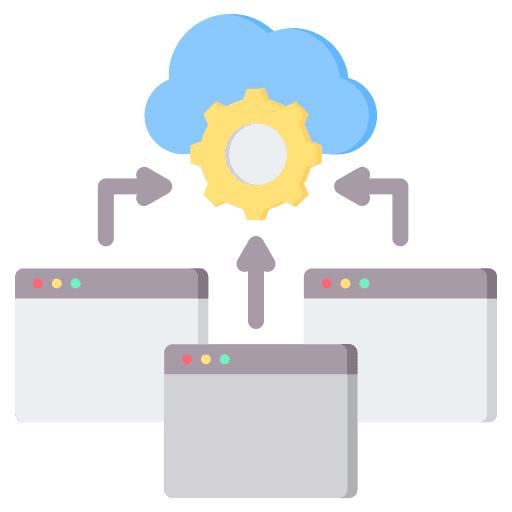Better Intelligence Management & Data Storage
95%
Decrease in Outstanding
Referrals
50,000+
Settled Investigations
100m+
Fraudulent Claims Managed
10+
Ready Integrations
Unified Access to Intelligence
Ineffective fraud prevention often stems from scattered and poorly managed fraud intelligence. When insights are stored across isolated systems, it becomes difficult for investigators to identify links, spot trends, or build complete case narratives. Fraud intelligence management suffers when information is inaccessible or fragmented, resulting in delays, repeated work, and reduced investigation accuracy. FraudOps solves these problems through a single, accessible platform that supports centralised fraud data storage, structured intelligence workflows, and built-in collaboration tools.
All fraud-related intelligence is stored in a single, secure environment, reducing dependency on fragmented tools and enabling consistent, centralised case access
Investigators benefit from rapid retrieval of past intelligence, allowing quicker decisions and fewer delays during case reviews or fraud investigation updates.
Using centralised fraud data storage, teams collaborate in real time with full awareness of all ongoing and historical investigation inputs.
Consolidated intelligence also enables deeper insights that support scalable casework, reduce duplication, and strengthenquality of fraud response efforts.
From Data to Insight
By centralising and enriching intelligence, FraudOps equips teams with tools to transform raw data into strategic knowledge. Seamless connection of cases, suspects, and behaviors helps uncover fraud patterns that were once hard to see.
Intelligent mapping links related cases, uncovering patterns otherwise missed in manual intelligence reviews.
Case connections reveal fraud schemes faster, improving investigation depth and reducing operational inefficiencies.
Real-time scans using fraud pattern recognition software expose trends in ongoing and historical fraud activities.
Captured knowledge supports long-term learning, driving better fraud intelligence management across future investigations.
Experience the capabilities of FraudOps firsthand and understand how intelligence management drives better outcomes.
Centralised Intelligence Hub
To manage complex fraud cases effectively, investigation teams need a centralised system for collecting, storing, and accessing intelligence. Disconnected systems often lead to duplicated efforts, incomplete context, and overlooked insights. FraudOps eliminates these challenges through a unified intelligence architecture that consolidates all investigation data in one place. This centralised hub supports seamless collaboration, smarter decision-making, and faster investigation outcomes.




Advanced Fraud Pattern Recognition
Recognising fraud patterns across disconnected cases requires more than manual observation or limited analysis tools. FraudOps applies intelligent automation and data science to uncover hidden fraud relationships that are not easily visible through traditional methods. Its powerful engine uses behavioural indicators and case similarities to link data points in real time, helping investigators detect repeat schemes and evolving threats.




Efficient Intelligence Review
Reviewing past fraud intelligence efficiently helps teams make faster, more accurate investigation decisions. Yet without structured access to historical data and expert knowledge, reviews are often delayed or incomplete. FraudOps streamlines intelligence review by combining intelligent search, case context, and accessible resources into one interface, enabling investigators to learn from past cases while staying focused on the current investigation.




Your Current Situation
TEAM DETAILS
Your team is spending the equivalent of 3 full-time investigators on administrative tasks. That's £175,500 in salary costs that could be redirected to actual investigation work.
Your Current Situation
OPERATIONS
With improved efficiency, your team could handle +30 additional cases per month, generating £144,000 in extra annual revenue. You only need 8 additional cases per month to cover the platform cost.
Your Current Situation
TEAM DETAILS
OPERATIONS
Efficiency Savings: Reclaim £87,750 by reducing admin overhead.
Revenue Growth: Generate £144,000 in additional revenue with 30 extra cases per month.
Net Impact: After platform costs, your net benefit is £195,750 annually.
Case Connection and Linking
Connecting related fraud cases is essential for uncovering large-scale schemes and shared actors. However, without tools for identifying links between cases, investigators often miss patterns across different events. FraudOps strengthens case connectivity by automatically mapping relationships, linking shared intelligence, and supporting cross-case analysis. This enhances investigation outcomes by revealing fraud networks that would otherwise stay hidden.




Intelligence Analytics and Insights
Raw fraud data must be translated into strategic insight to support proactive action. FraudOps helps investigation teams move beyond reactive detection by delivering advanced intelligence analytics. From predictive risk models to in-depth threat assessments, the system transforms stored intelligence into usable guidance. This enables smarter prioritisation, faster escalation, and more informed case strategy.




Transform your fraud intelligence into actionable insight.
Knowledge Base Management
A centralised knowledge base ensures investigation teams never start from scratch. FraudOps captures critical insights, methodologies, and learnings from past cases, creating a living resource for consistent decision-making. By structuring institutional knowledge in one location, investigators gain instant access to trusted techniques and updated fraud intelligence.




Collaboration and Sharing
Effective fraud detection depends on collective intelligence. FraudOps supports internal and external collaboration through secure, structured sharing mechanisms. From cross-functional teams to inter-agency intelligence exchange, the platform ensures data flows efficiently, without compromising security or privacy.




Security and Access Control
Fraud intelligence is only as effective as the system that protects it. FraudOps applies strict access controls and security protocols to safeguard sensitive intelligence. Every piece of data is handled with precision, ensuring confidentiality, integrity, and compliance across all investigations.




Intelligence Success Stories
See how organisations have transformed their fraud investigation outcomes through better intelligence management. From uncovering hidden fraud rings to accelerating case resolutions, these success stories highlight the real-world impact of centralised fraud data storage, pattern recognition software, and collaborative intelligence review. Explore how FraudOps helped teams improve decision-making, streamline investigations, and strengthen knowledge management at scale.
Get Started with Intelligence Management
Building a strong fraud intelligence foundation begins with the right tools and approach. FraudOps offers powerful capabilities that help organisations move from fragmented systems to streamlined, secure, and connected intelligence environments. These features are designed to improve investigation accuracy, accelerate detection, and ensure long-term knowledge retention across fraud teams.

Set Up Central Intelligence

Integrate Data Sources

Configure Access Controls

Enable Smart Retrieval

Connect Related Cases

